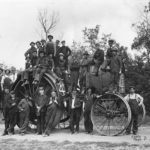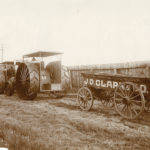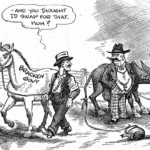The Manitoba Agricultural Museum holds in its collection the photo seen here, which is thought to show the students of an engineering course at the Manitoba Agricultural College. Manitoba’s rapid growth at the turn of the century prompted the provincial government to support agricultural research and education. The Manitoba Agricultural College (MAC) was established in








